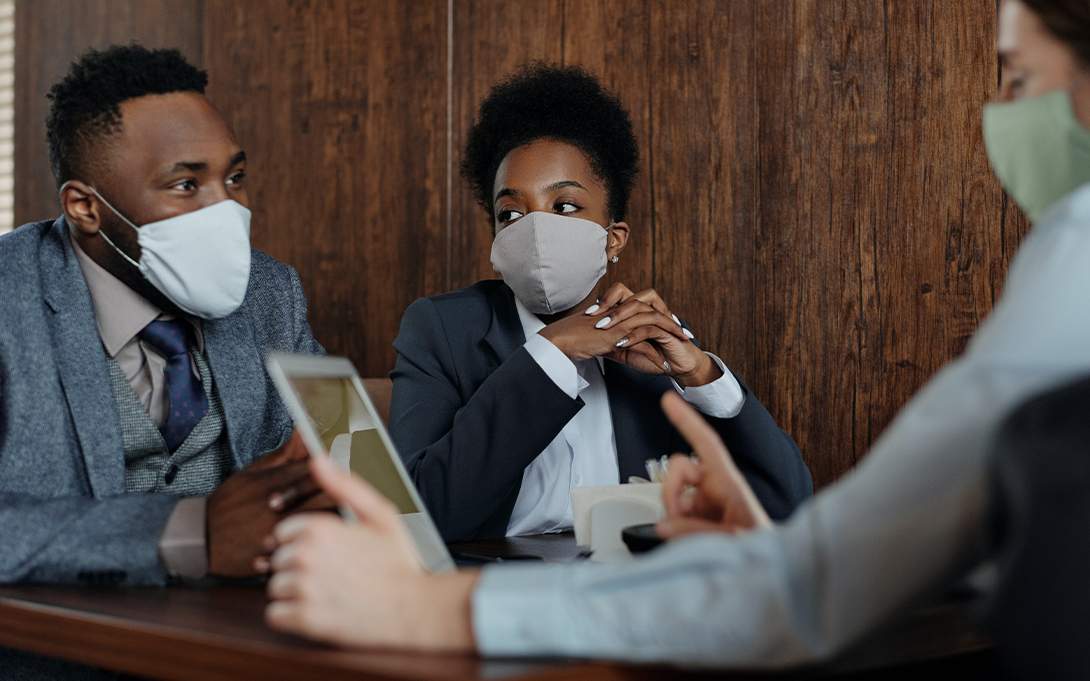
One element of the struggle for economic equity in Black, Indigenous, and other People of Color (BIPOC) communities is the intentional denial of support networks that provide funding, customers, connections or other resources for businesses and community organizations. This summer, as COVID-19 affected those communities hardest, teams of Ford School students worked with agencies in Washtenaw County, the home of the University of Michigan, to invest their time and talents in projects that aim to advance racial equity. The students were part of the COVID-19 Consultant Corps (CCC), partnership among the research centers of the Gerald R. Ford School of Public Policy and led by the Youth Policy Lab to support local governments and nonprofits with data-gathering and operational insight as they respond to the COVID-19 crisis.
Monika Anderson (MPP/MSW ‘21) helped compile a registry of BIPOC-led nonprofit organizations in the county for NEW, a nonprofit consulting agency that provides management, IT, training and outreach services to other nonprofits. The project was meant to help NEW survey the landscape of organizations that might need additional services in the challenging months ahead, including through introductions.
Anderson found more than 20 organizations in Washtenaw County.
Yodit Mesfin Johnson, President and CEO of NEW, says she was able to use the list immediately to reach out to potential funders and to create links between the organizations. However, she says, it presents a challenge as well. “These lists are only a start. I believe that we need a tool that not only lists these organizations and leaders, but that also maps location, flow of capital to them and the ability to measure growth (or declines) of BIPOC leaders and movements over time. That was the rub for us: how to use it intentionally and not just throw it up on our website absent a call to action.”
The Washtenaw County Office of Community and Economic Development (OCED) is updating its strategic plan and wants to better understand best practices and models that improve economic equity. It has looked to other local development agencies for best practices and models, which is where Alex Serwer (MPP ‘20) and Emily Fletcher (MPP/MBA ‘20) stepped in. They compiled a list and reviewed best practices and models from 50 local economic development agencies from across the country. From their qualitative findings, they made recommendations to the agency.
Serwer says the racial equity component is critical. ”I think that for years we have grown and grown in all areas geographically, but that growth has only been awarded to certain demographics of people and other demographics are repeatedly left out. If you're going to think about economic development if you don't have an understanding of what sustainable and equitable growth looks like, then you're not doing it right.”
OCED director Teresa Gillotti is grateful for the focused research. “Comparable programs and equity approaches to economic development will help inform our process here,” she says.
A native of Seattle, Fletcher will be working at a consultancy firm in that region. She notes that Washtenaw County has a divide between the Ann Arbor-U-M “bubble”and other areas including Ypsilanti. “There is a lot of conversation here about racial inequity and what gentrification and economic growth has meant for historically marginalized communities. Having that frame of reference of this work is going to be really important, going into the work that I do with larger businesses in a whole different part of the country that's experiencing similar disparities and inequities,” she says.
The CCC was created in partnership with other Ford School and U-M centers including Center for Local, State, and Urban Policy (CLOSUP), Poverty Solutions, Program in Practical Policy Engagement (P3E), and the Ginsberg Center, “to deploy our collective expertise and student talent in support of local governments and nonprofits as they respond to the COVID-19 crisis.”